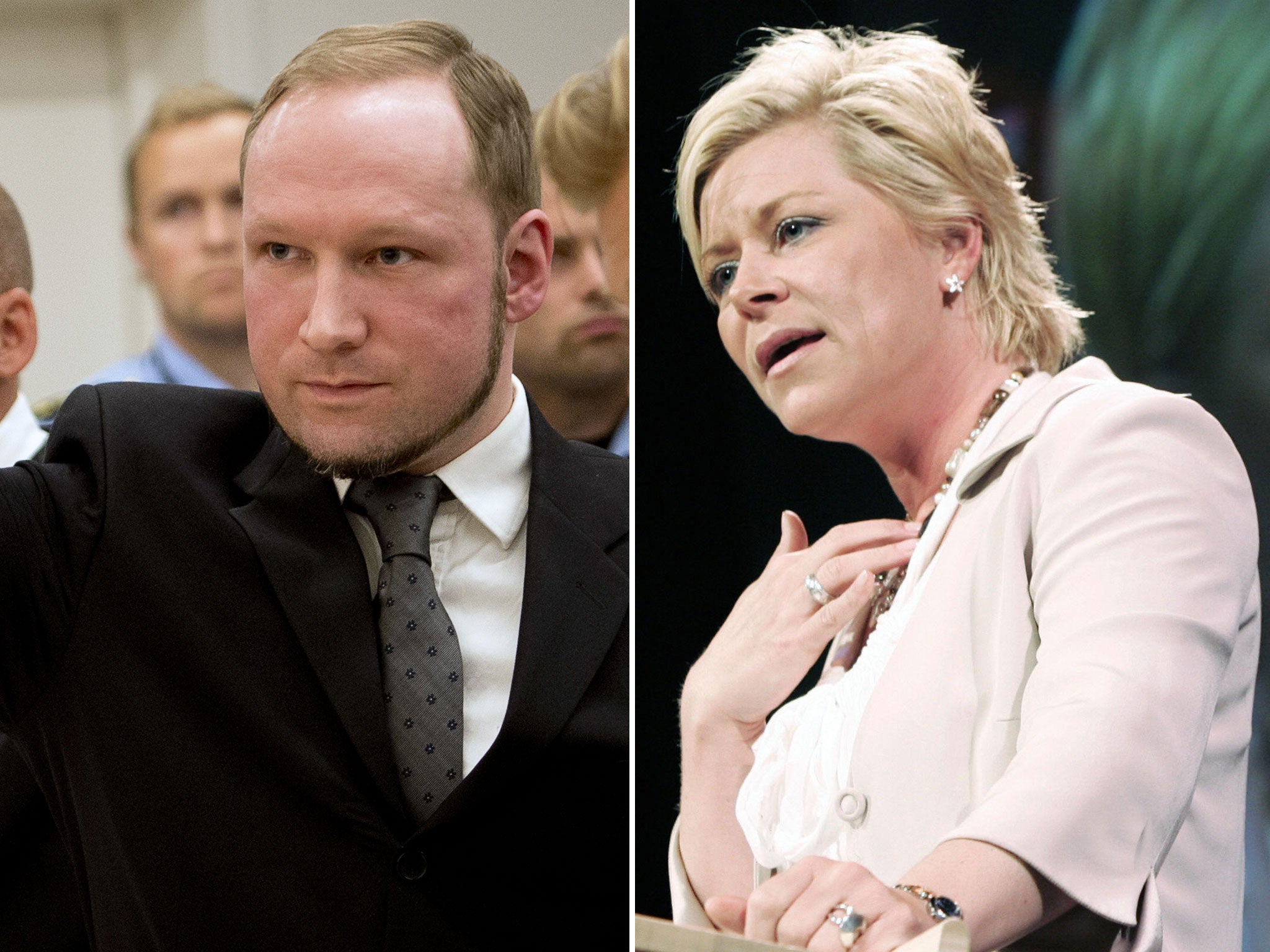Norway election results: Anti-immigrant party with links to mass murderer Anders Behring Breivik set to enter government under Conservative leader Erna Solberg
Utoya mass murderer Breivik was a member of the populist right-wing Progress party, which is set to join three centre-right parties in a coalition

Your support helps us to tell the story
From reproductive rights to climate change to Big Tech, The Independent is on the ground when the story is developing. Whether it's investigating the financials of Elon Musk's pro-Trump PAC or producing our latest documentary, 'The A Word', which shines a light on the American women fighting for reproductive rights, we know how important it is to parse out the facts from the messaging.
At such a critical moment in US history, we need reporters on the ground. Your donation allows us to keep sending journalists to speak to both sides of the story.
The Independent is trusted by Americans across the entire political spectrum. And unlike many other quality news outlets, we choose not to lock Americans out of our reporting and analysis with paywalls. We believe quality journalism should be available to everyone, paid for by those who can afford it.
Your support makes all the difference.Norway’s anti-immigration Progress Party, which once counted the convicted mass murderer Anders Behring Breivik among its members, will enter government for the first time as part of a coalition under Conservative Party leader Erna Solberg.
Labour Prime Minister Jens Stoltenberg conceded defeat on Monday night and, with 99.7 per cent of the vote counted this morning, his centre-left alliance of parties had only won 72 seats in the Stortinget (Parliament).
That was compared to the centre-right coalition of four parties which took a combined 96 seats, 11 more than the number needed for a majority.
Opinion polls published on the eve of voting predicted that Progress, led by Siv Jensen, a 44-year-old admirer of Margaret Thatcher, would win 14 per cent of the vote – and that proved an underestimate, with the latest results suggesting it took 16.3 per cent and claimed 29 seats.
Fifty-two-year-old Ms Solberg has now invited the leaders of Progress, the Christian Democrats and the Liberal Left to sit down with her and discuss the terms of a new, non-socialist coalition government.
She has been compared to Germany’s Angela Merkel, and her party took 26.8 per cent of the vote off the back of a campaign to make Norway less dependent on its massive €560 billion oil and gas revenues.
“We need new and different jobs which don’t rely on the oil business,” she said.
Mr Stoltenberg, Norway’s PM for the past eight years, won widespread admiration for rallying Norwegians in the wake of Breivik’s attacks on 22 July 2011. Seventy-seven people were murdered and a further 240 were wounded in a bomb attack in Oslo and a subsequent massacre involving scores of teenage Labour members attending summer camp on the island of Utoya. Breivik was convicted and jailed for life last year.
And while today it remains the largest single political party, taking 30.9 per cent of the vote, Labour’s popularity was badly dented by an independent inquiry soon afterwards. It concluded that Norway’s police could have prevented Breivik’s Oslo attack and that his subsequent slaughter on Utoya could have been halted earlier if officers had responded correctly and been properly equipped.
Progress will be the focus of attention when it comes to power. Ms Solberg has said that she is prepared to form a coalition with the party despite its stance on immigration. Asked about the presence of immigrant Roma beggars on the streets of Oslo, Progress’s leader, Ms Jensen, replied: “Put them on a bus and cart them back to the Balkans.”
Breivik, 34, was a member of Progress in his youth, but later left the organisation because he considered it was not militant enough.
Progress’s popularity nose-dived in the aftermath of Breivik’s massacres but it has since toned down its radical anti-Islamic rhetoric and tried to present itself as a party of government. Polls have shown that Progress appeals to one in seven of Norway’s voters.
The party has exploited the criticism levelled at Mr Stoltenberg’s government for its failure properly to equip the police. It has accused Labour of insufficiently funding other key areas including social welfare and infrastructure.
“If you look at the tragedy of 22 July, the lack of police helicopters was one of the factors for not getting police to Utoya as quickly as we would have liked,” said the Progress party spokesman Morten Hoglund. “But we are also talking about hospitals and other kinds of investment,” he added.
Yet the imminent prospect of Progress entering government has alarmed the handful of Utoya survivors who ran as Labour candidates.
“Some of their prominent figures still use very strong anti-immigrant rhetoric,” said 29-year-old Vegard Groslie-Wennesland, who witnessed Breivik’s Utoya massacre. “That sort of rhetoric will create a more hostile environment,” he added.
Join our commenting forum
Join thought-provoking conversations, follow other Independent readers and see their replies
0Comments